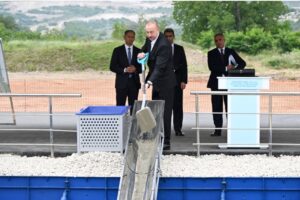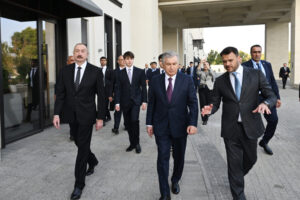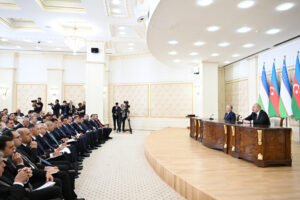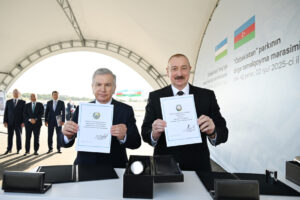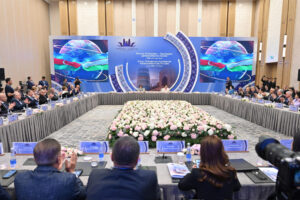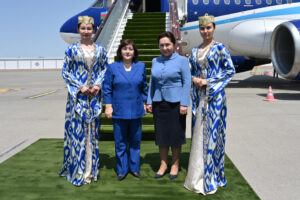Tokyo, 26 October, /AJMEDIA/
The U.S. and Australian leaders on Wednesday agreed to expand defense cooperation with Japan in areas such as unmanned aerial systems, as China’s military assertiveness over Taiwan and other parts of the Indo-Pacific region will likely continue for many years.
U.S. President Joe Biden and Australian Prime Minister Anthony Albanese agreed that expanding the three-way partnership will improve interoperability and accelerate technology transfer in the rapidly evolving area of “collaborative combat aircraft,” in which drones operate with manned fighters, according to the White House.
They also welcomed Australia’s upcoming participation in annual U.S.-Japan defense drills starting in 2023, while reaffirming that cooperation beyond security matters, such as on the development of secure clean energy supply chains in the region, will be advanced through the Quad, a group the three countries form with India.
At the White House, the leaders produced agreements on a range of areas, from artificial intelligence and cybersecurity to outer space and critical minerals.
As part of efforts to counter China’s growing influence among Pacific island countries, Biden and Albanese agreed to provide them with infrastructure assistance, such as through a plan to finance $65 million for a project to lay undersea internet cables, according to a joint statement.
Against the backdrop of China’s rise, the United States and Australia have both recognized that the role their long-standing alliance plays is more important, with Albanese saying at a joint press conference that their relationship has “never been stronger than it is right now.”
Before the start of his Oval Office meeting with Albanese, Biden revealed he was asked by Chinese President Xi Jinping a couple of years ago why the United States sought to deepen ties with Australia.
“I said, ‘Because we’re a Pacific nation.’ He looked at me, and I said, ‘Yeah, we’re a Pacific nation — the United States.’ We are, and we’re going to stay that way,” Biden said.
While the U.S. and Australian governments are on the same page with regard to strategies toward China, Biden and Albanese have at the same time moved toward easing tensions with the Asian powerhouse.
On Sunday, just hours before leaving for the United States, Albanese said he will travel to China from Nov. 4 to 7 and hold talks with Chinese President Xi Jinping. He will be the first Australian prime minister to visit China in seven years.
Biden is also hoping to hold one-on-one talks with Xi when he hosts this year’s summit of the Asia-Pacific Economic Cooperation forum in San Francisco in mid-November.
While meeting the press with Albanese, Biden said the United States will “compete with China” according to international rules, including on economic and political matters, but “I’m not looking for conflict.”
Albanese’s first White House visit since Biden took office in 2021 came a day before China’s top diplomat Wang Yi’s scheduled arrival in the U.S. capital.
Wang’s visit is seen as part of preparations for a potential summit between Biden and Xi during what could be the Chinese leader’s first trip to the United States since April 2017.











